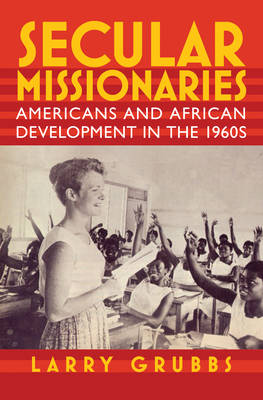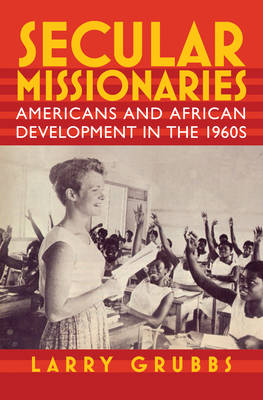
- Retrait gratuit dans votre magasin Club
- 7.000.000 titres dans notre catalogue
- Payer en toute sécurité
- Toujours un magasin près de chez vous
- Retrait gratuit dans votre magasin Club
- 7.000.000 titres dans notre catalogue
- Payer en toute sécurité
- Toujours un magasin près de chez vous
45,95 €
+ 91 points
Description
In 1961, as President John F. Kennedy proclaimed the beginning of a Decade of Development, the United States embarked on its first coherent Africa policy. Guided by the precepts of modernization theory, American policymakers, diplomats, academics, and Peace Corps volunteers were dispatched to promote economic growth and nation-building among the newly independent countries of sub-Saharan Africa. At the outset, Larry Grubbs shows, many of these secular missionaries were no less sanguine about their prospects for success than were their Christian predecessors a century earlier. But before long their optimism gave way to disillusionment, as rosy forecasts of sustained development collided with African political realities and colonial economies based on single-commodity exports subject to global price fluctuations. In this book, Grubbs presents a cultural history of this ill-fated American campaign to modernize Africa during its first decade of independence. Drawing on government documents and contemporary press accounts as well as an extensive body of scholarship on U.S.-Africa relations, he exposes the contradictions at the core of a self-serving idealism that promised to win the continent of Africa for the West in the context of the Cold War. While many Americans working in Africa considered themselves opponents of ethnocentrism, the modernization goals they served carried an ingrained, if unacknowledged, cultural and ideological sense of superiority and faith in American exceptionalism. Similarly, persistent myths about African backwardness and primitiveness continued to afflict U.S. policy, despite official pronouncements of confidence in the transformative power of Western expertise and can-do pragmatism in bringing African societies into the modern world. If the assumptions underlying U.S. policy toward Africa during the 1960s were simply relics of outmoded Cold War orthodoxies, that would be one thing. Unfortunately, Grubbs concludes, many of the same ideas imbue contemporary discussions of the ongoing crisis in Africa, from the campaigns to Save Darfur and stop the spread of AIDS to efforts to eliminate blood diamonds and forgive African debts.
Spécifications
Parties prenantes
- Auteur(s) :
- Editeur:
Contenu
- Nombre de pages :
- 256
- Langue:
- Anglais
- Collection :
Caractéristiques
- EAN:
- 9781558497344
- Date de parution :
- 15-01-10
- Format:
- Livre relié
- Format numérique:
- Genaaid
- Dimensions :
- 147 mm x 226 mm
- Poids :
- 566 g







